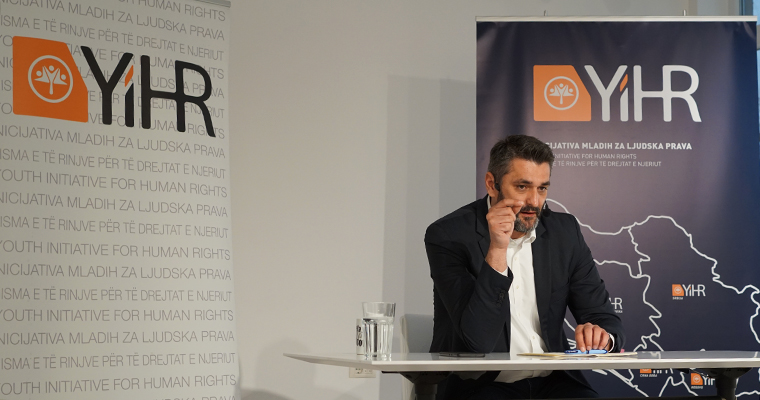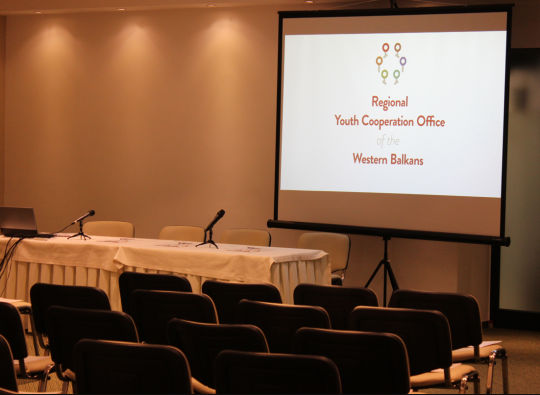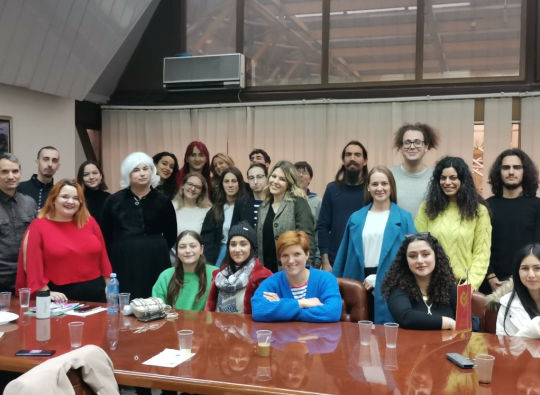“That pattern which had existed since 1992 received a horrible acceleration, horrible intensity in July 1995”, said Suljagić at a public lecture “Srebrenica: Genocide Between Memory and Denial”.
Suljagić has said that the Srebrenica Genocide Memorial will make a list of human losses since May 1992, when Srebrenica was declared a UN protected area.
“We wish to do this because, for example, people murdered on July 6, 7 or 8, 1995 are not treated as victims of genocide, for reasons we do not know”, said Suljagić.
He has said that 150 and 200 thousand announced visitors visit the Srebrenica Memorial Centre every year, not including those who come on their own.
In his opinion, Srebrenica should be talked about throughout the whole year and not only in July.
Suljagić has said that an answer should be given to the question what Srebrenica is to former Yugoslavia and what are the reflections on Srebrenica on the territory that used to be our common country.

He has added that education is key when it comes to the culture of remembrance of genocide in Srebrenica among younger generations, stressing that art and artivism are very important for building a lasting culture of remembrance.
“I was slightly resigned when I realised that of all republics of former Yugoslavia, only in Bosnia and Herzegovina and in Serbia there are any reflections on Srebrenica. But, I truly believe in future, I believe in young generations, I believe that they will change this and that they will not experience what happened to us”, said Suljagić who survived genocide in Srebrenica.
He has added that he is “shocked” to see how some young people in the Republic of Srpska easily assume the burden of responsibility of individuals who committed war crimes, which is a consequence of poor education system which is subordinated to governing nationalist ideology.
According to him, as long as there are political classes which deny the genocide, we will not be able to talk about lasting peace or any future.
“The denial of the Srebrenica genocide over and over again opens the wounds of survivors. The aim of this denial is to tell the story of the 1990s and normalise nationalist projects as legitimate national and state aspirations”, said Suljagić.
He has added that the aim of the denial of the genocide is not to establish something new, but to substantiate the narrative founded on lies and fiction, and then for it to serve as a way to “wash” an ideology and a project which resulted in 100,000 dead in Bosnia and Herzegovina and millions of refugees.
Suljagić has said that he is not against the adoption of the law prohibiting the denial of genocide in Srebrenica, but such law must include the denial of Jasenovac and other similar atrocities in the history of this region, as well.
“But I am not sure this would help. One million people will not convert overnight; it is a long process which above all implies education. Education system is what we should ‘attack’. The law is not a magic wand. The denial of genocide of today can already be sanctioned under current criminal and other laws”, said Suljagić.
In his opinion, institutions in the countries of the region are hostile towards civil society organisations active in the area of dealing with the wartime past and responsibility for war crimes.
He has said that the Srebrenica Genocide Memorial could work more diligently than it does at the moment.
Emir Suljagić’s lecture was organised by the Youth Initiative for Human Rights in Serbia in co-operation with forumZFD Serbia and Independent Association of Vojvodina Journalists.
Emir Suljagić graduated from the Faculty of Political Sciences in Sarajevo and got his PhD degree at the Institute for Peace Research and Security Policy in Hamburg in 2009.
As one of the rare survivors of the Srebrenica genocide, he is known for his commitment to and advocacy for full respect of families of war crime victims in Bosnia and Herzegovina.
Hs book “Postcards from the Grave” is the first account of genocide in Bosnia and Herzegovina published in English.









